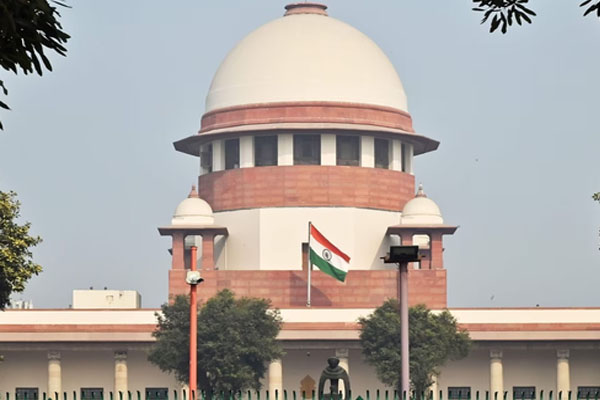
New Delhi. The Supreme Court said that whether a group is a ‘minority’ should be decided on the basis of current standards and not on the basis of the situation which existed before the coming into force of the Constitution of India. Was present. During the hearing of the matter related to minority status of Aligarh Muslim University (AMU), a seven-member Constitution bench made this comment when senior lawyer Rakesh Dwivedi said that the British rule Muslims were not a minority at the time of the establishment of AMU in 1920.
Dwivedi was appearing for one of the petitioners who had moved the Allahabad High Court challenging the minority status of AMU. Dwivedi said, being a Muslim is one thing and being a minority is another. He said there was no concept of ‘minority’ during British rule. Hindus and Muslims suffered equally under British rule. Moreover, the founders of AMU were loyal to the British Empire and hence this group of the ruling class cannot be called a ‘minority’. However, the CJI bench expressed skepticism over the approach of using pre-constitutional circumstances to assess minority status under the Constitution.
The question that has been raised is whether AMU is established and administered by the minorities, the bench said. What is relevant is whether they are a minority today.
Do not comment on political figures: CJI
On mentioning former PM Indira Gandhi during the hearing, the bench said not to comment on political personalities. The lawyer had said in his argument that Muslims, as a minority, influence the elections. If Bhindranwale is the gift of Indira Gandhi then Owaisi is the gift of BJP. They want to divide Muslim votes. On this the CJI said, we will not move away from the scope of constitutional law. Do not comment on political figures.
An institution established before the Constitution cannot claim minority status.
CJI Chandrachud said that if this logic is accepted then no institution established before the Constitution can claim minority status. On this, senior lawyer Kapil Sibal, who supported minority status for AMU, said that the Supreme Court has said in the Kerala Education Bill judgment that the protection of Article 30 is available even to those institutions which were established before the Constitution. The CJI said that the concept of minority was not created for the first time in 1950, when the Constitution was adopted. When Article 30 says ‘all minorities’, it looks at the social and historical situation before the birth of the Constitution.
For establishment before the Constitution, one has to go back to the time of establishment: Justice Khanna
Justice Sanjiv Khanna, member of the bench, said, when we refer to any establishment before the Constitution, we have to go back to the time when the institution was established. Not whether that community was majority or minority at that time… but who established it. Who is minority or majority – this will be decided on the date of adoption of the Constitution.
Share:

